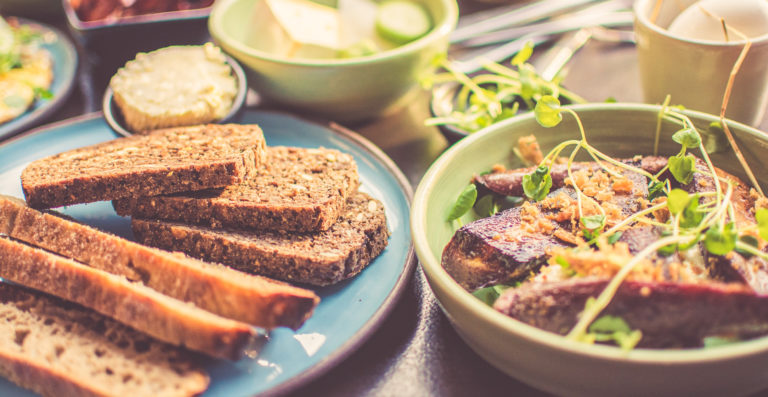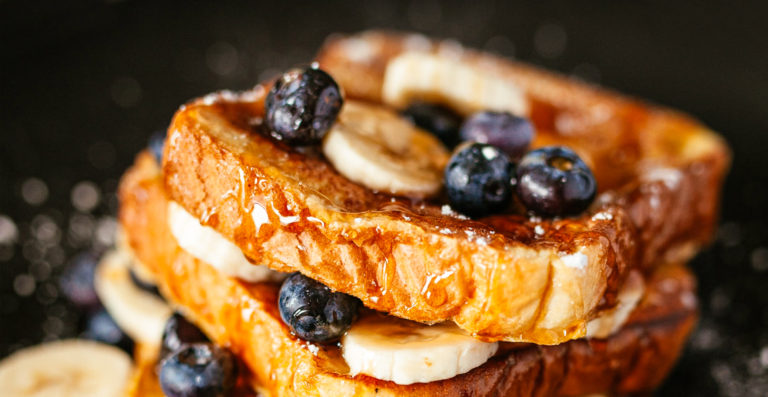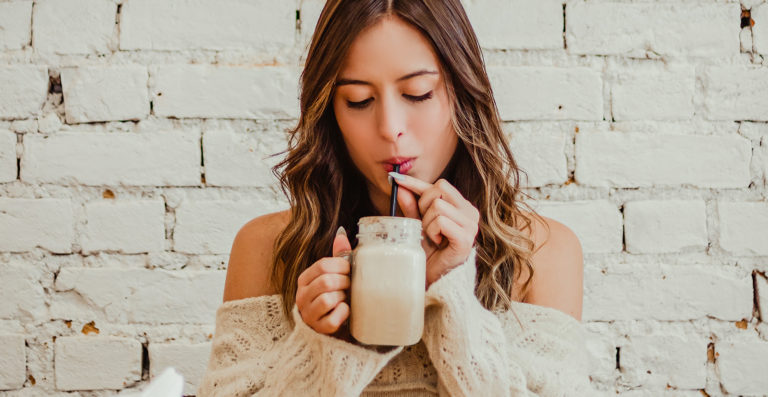
Are you the kind of person who enjoys smoothies because their delicious sweetness makes your taste buds do a happy dance? Or maybe you don’t care what your smoothie tastes like as long as it’s chalk full of healthiness? The perfect vegan smoothie can fall under either category, although somewhere in the middle is likely preferred.
The perfect vegan smoothie isn’t only free from animal products, but it compliments a vegan diet to round out all the nutrients our bodies need. It should provide some protein and iron, as well as good quantities of vitamin B12, calcium, and iodine. Many of these nutrients can often be lacking in a vegan diet.
For me, smoothies are sort of like a multivitamin. I add in so much good stuff that I make sure to cover all my bases and protect for any potential nutrient deficiencies from my diet.

Protein
My go-to for protein in smoothies is a high quality vegan protein powder. I prefer ones made with amino acids from multiple sources like hemp, pea, rice, lentil, quinoa, chia, etc. This ensures that I get a complete protein profile with every smoothie I eat. This is especially beneficial if you’re vegan but don’t eat a lot of unprocessed foods where you would otherwise get complete proteins. The added benefits of some protein powders is that they can also contain beneficial probiotics and digestive enzymes.
Vitamin B12
While on a vegan diet you will still likely need to supplement with B12, but spirulina can be added to your smoothie as an additional source. Spirulina has quite a strong taste so don’t go overboard with it. Unless you’ve added something else to your smoothie to offset the taste, the Spirulina taste will dominate. Soy milk, coconut milk, and almond milk fortified with B12 are also great smoothie additions.

Iron
Using ground nuts and seeds like ground pistachios, almonds, pumpkin seeds, flaxseeds, etc. in your smoothies adds a rich source of iron. You can also add finely ground oats for a good source of protein.
Calcium
Green leafy vegetables are a great source of calcium, so adding things like spinach, kale, lettuce, bok choy, etc to your smoothie should give you good quantities of calcium. You can also add ground sesame seeds, walnuts, sunflower seeds, or almonds which are great calcium sources too.
Iodine
On a vegan diet, iodine is primarily found in sea vegetables. You can add them to your smoothie just like you would leafy greens. Kelp, dulse, wakame, and nori can all be added in small amounts to get the iodine your body needs. Alternatively, you can add in a sea vegetable blend or protein powder with sea veggies from the health food store. Chlorella is an additional supplement that is a good source of iodine.

If you only add the above ingredients to your smoothie, it’s likely not going to taste very good. Sorry. Fortunately, there are plenty of other vegan ingredients you can add into your smoothie to make it taste awesome. Here’s how I do it:
The helpful vegan ingredients:
| Vegan protein powder, vanilla flavoured |
| Spirulina + chlorella powder |
| Ground oats |
| Ground almonds |
| Milled flaxseeds |
| Spinach |
The tasty stuff:
| Banana, pineapple, and mango (fresh or frozen) |
| Coconut milk yogurt (vanilla flavoured) |
| Raw agave syrup |
| (Plus lots of filtered water) |
To Conclude
It will take a bit of experimentation on your part to determine the perfect ratios of the ingredients to fit your taste preferences, but try to add in plenty of the helpful vegan ingredients since those ones are supporting your health and your vegan diet.
Sources
Nutritional Symptomatology.
Danielle Perrault. Ontario. CSNN Publishing, 2013. Print.
www.nutritionfacts.org/video/omnivore-vs-vegan-nutrient-deficiencies-2/
www.healthline.com/nutrition/protein-for-vegans-vegetarians#section7
www.livestrong.com/article/486854-are-hemp-seeds-a-good-source-of-protein/
www.activatedyou.com/iodine-rich-foods-vegan/
Disclaimer
The contents of this website are for informational purposes only and should not be considered any type of medical advice. The information provided in this website should not be used for diagnosing or treating a health condition or disease, and should not be substituted for professional care. Every human is biochemically different and what works for one person may not work for another. If you suspect or have a medical condition, consult an appropriate health care provider.





Leave a Comment